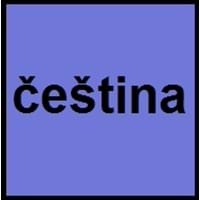Czech and Cantonese
Countries
Czech Republic, European Union
Hong Kong, Macau
National Language
Czech Republic
China, Guangdong
Second Language
Not spoken in any of the countries
Not spoken in any of the countries
Speaking Continents
Europe
Asia
Minority Language
Austria, Croatia, Germany, Slovakia
Hawaii
Regulated By
Institute of the Czech Language
Civil Service Bureau, Government of Hong Kong, Official Language Division
Interesting Facts
- The Czech language was known as Bohemian as early at 19th century.
- In czech language, there are many words that do not contain vowels.
- Cantonese have lot of slangs, many of them include words that do not make sense at all and some also have English in them.
- Even though Cantonese and Mandarin are dialects of Chinese, Cantonese has 8 tones instead of Mandarin's 4.
Similar To
Polish, Slovak and Sorbian
Chinese Language
Derived From
Not Available
Not Available
Alphabets in
Czech-Alphabets.jpg#200
Cantonese-Alphabets.jpg#200
Scripts
Latin
Chinese Characters and derivatives
Writing Direction
Left-To-Right, Horizontal
Left-To-Right, Horizontal, Top-To-Bottom
How Are You?
Jak se máš?
你好吗?
Good Evening
dobrý večer
晚上好
Good Afternoon
dobré odpoledne
下午好
Good Morning
dobré ráno
早上好
Where They Speak
Chodsko, Bohemia
outside mainland China
Where They Speak
Czech Silesia, Hlucin, Northeast Moravia
Hong Kong
Dialect 3
Moravian
Hong Kong
Where They Speak
Czech Republic, Czech Silesia, Moravia, Slovakia
Hong Kong
How Many People Speak
Not Available
Native Name
čeština / český jazyk
Kwang Tung Wa
Alternative Names
Bohemian, Cestina
Guangfu, Metropolitan Cantonese
French Name
tchèque
Not Available
German Name
Tschechisch
Not Available
Pronunciation
Not Available
Not Available
Ethnicity
Czechs
Not Available
Origin
9th Century
17th century
Language Family
Indo-European Family
Sino-Tibetan Family
Subgroup
Slavic
Not Available
Branch
Western
Not Available
Early Forms
Proto-Czech, Old Czech
No early forms
Standard Forms
Standard Czech
Standard Cantonese
Language Position
Not Available
Signed Forms
Czech Sign Language
Not Available
Scope
Individual
Not Available
ISO 639 1
cs
No data available
ISO 639 2/T
ces
Not Available
ISO 639 2/B
cze
Not Available
ISO 639 3
ces
No data available
ISO 639 6
Not Available
Not Available
Glottocode
czec1258
cant1236
Linguasphere
53-AAA-da
No data available
Language Type
Living
Not Available
Language Linguistic Typology
Not Available
Not Available
Language Morphological Typology
Fusional, Synthetic
Not Available
All Czech and Cantonese Dialects
Most languages have dialects where each dialect differ from other dialect with respect to grammar and vocabulary. Here you will get to know all Czech and Cantonese dialects. Various dialects of Czech and Cantonese language differ in their pronunciations and words. Dialects of Czech are spoken in different Czech Speaking Countries whereas Cantonese Dialects are spoken in different Cantonese speaking countries. Also the number of people speaking Czech vs Cantonese Dialects varies from few thousands to many millions. Some of the Czech dialects include: Chod, Lach. Cantonese dialects include: Guangzhou , Xiguan. Also learn about dialects in South American Languages and North American Languages.
Czech and Cantonese Speaking population
Czech and Cantonese speaking population is one of the factors based on which Czech and Cantonese languages can be compared. The total count of Czech and Cantonese Speaking population in percentage is also given. The percentage of people speaking Czech language is 0.15 % whereas the percentage of people speaking Cantonese language is 16.00 %. When we compare the speaking population of any two languages we get to know which of two languages is more popular. Find more details about how many people speak Czech and Cantonese on Czech vs Cantonese where you will get native speakers, speaking population in percentage and native names.
Czech and Cantonese Language Codes
Czech and Cantonese language codes are used in those applications where using language names are tedious. Czech and Cantonese Language Codes include all the international language codes, glottocodes and linguasphere.





